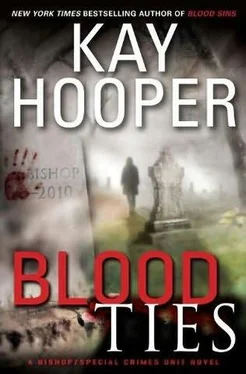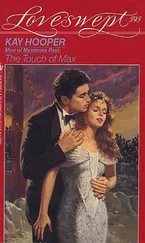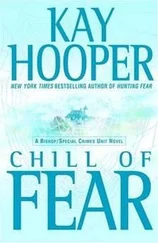“Micah—”
“Whatever you want to say about it, however you choose to view it, Bishop and his team stopped a serial killer. One of many they’ve stopped. That is beyond dispute.”
The other man was silent for a moment, then said, “So he’s finally won you over, I see.”
Hughes paused as the guard strolled through the room several feet away from the two men, then said evenly, “I don’t like Bishop. I believe he’s arrogant and ruthless, that he has a tendency to play by his own rules rather than the rule of law, and I profoundly distrust these… paranormal abilities claimed by him and by his agents.”
“But he’s successful. And that’s enough for you.”
“He gets results. Positive results. He catches, cages, or otherwise destroys killers who are, without any doubt, a menace to public safety. He does it without fanfare, keeping himself and his people out of the media as much as possible, and he does it without making the Bureau look bad, to the public or to other law enforcement agencies. If anything, the work of his unit has improved the image of the FBI in recent years. And we needed it.”
“I see,” the other man repeated. “You’ve taken the time to read all the files in more detail.”
Hughes could feel himself beginning to sweat. “I didn’t want to let my dislike color my judgment. So, yes, I’ve gone back over the entire history of the SCU. Studied Bishop’s record and those of the agents in his unit.”
“You were impressed.”
“They’re an impressive group of people. Mavericks, yes. Misfits, certainly. Most if not all of them have seriously traumatic events in their pasts that should, at the very least, have rendered them unsuitable and even unfit for law-enforcement work.”
“That alone should tell you—”
“All passed the standard Bureau psychological evaluation and have passed all follow-up evaluations. Whatever happened to them, they’ve coped extraordinarily well with the trauma. In addition to that, Bishop has set as a requirement for his team regular physical evaluations, from medical to strength and endurance. Those people are tested at every level, far beyond Bureau standards or requirements. As a group they’re some of the most healthy and fit agents in the Bureau.” Hughes hesitated, then added, “They’re even assessed by a group of researchers I had no idea worked within the Bureau. Paranormal researchers.”
The other man let out a short, derisive laugh.
Hughes refused to allow himself to sound defensive when he said, “I’m told that particular group has been a part of the Bureau since the middle of the last century, during the Cold War, when it seems every major power was conducting legitimate research into the paranormal.”
“Governments fund crackpot research all the time, Micah, and we both know it. But ours didn’t get far with its remote-viewing experiments, did it?”
Hughes was more than a little surprised at that, though wondered why he was. In a know-your-enemies sense, his companion had quite probably looked into the history of paranormal research. He was, after all, a careful, thorough man.
“The remote-viewing experiments were less than successful,” Hughes admitted. “But other experiments have shown more promise. And I’m told that Bishop’s unit has produced a staggering amount of raw data from the field as well as in the lab, enough to keep the researchers busy for decades.”
“My tax dollars at work.”
Hughes ignored the scorn. “I don’t pretend to understand any of it and, as I said, I profoundly mistrust the very concept of psychic abilities, much less psychic abilities used as investigative tools. But Bishop has indisputably made it work; his success rate is in the ninetieth percentile. And his unit functions as a team better than any other unit in the Bureau.”
“Which is enough for you.”
“I’m the Director of the FBI. The successes and failures of my agents reflect well—or badly—on my judgment. And in my judgment, the Special Crimes Unit must be considered an unqualified success.”
“Micah—”
“All these months, and I’ve got nothing—absolutely nothing—I can use even to reprimand Bishop, let alone bust him.”
The other man took a step so that he faced Hughes more squarely and said, “You’re taking heat, aren’t you? You’ve been warned to back off.”
Shit .
“Senator LeMott.” It clearly was not a guess.
“I told you he was a powerful man. But it isn’t only him. From all I can gather, Bishop made a deliberate effort even before he formed his unit to cultivate the sort of connections he could call on for support. People inside and outside the Bureau, in the government and in the private sector. Very important, very influential people. And they appear to support him without reservation.”
After a pause, the other man said, “I could ruin you, Micah.”
Hughes refused to flinch or look away. “Yes, you could. But it wouldn’t change anything, not for you. Because I can virtually guarantee you that any successor of mine would also support Bishop and the SCU. Unless and until he does something unacceptable to the FBI, he will not be interfered with. Not by us.”
For a long, long moment, Hughes wasn’t sure what would break the stalemate. And then, completely expressionless, the other man turned and walked away.
Hughes watched him go. Watched the guard stroll through the room, casual and anything but. Then he turned in a different direction and made his way out of the museum, keeping his expression neutral, slightly preoccupied. When he was outside, he walked half a block to where his car and driver waited and got in.
Only then did he relax. Just a bit. The driver, without asking, started the car and pulled out of the space.
Hughes drew in a breath and let it out slowly, wondering, not for the first time, if he had chosen the wrong line of work. He reached for his cell phone and punched in a number from memory. It was answered on the first ring.
“Bishop.”
“We need to talk,” Micah Hughes said. “Now.”
Serenade, Tennessee
“DOGS,” SHERIFF DUNCAN OFFERED. “Not ‘til tomorrow, of course, but at first light. With people getting lost in these mountains as often as they do, we have nearly a dozen canine search-and-rescue teams in the area, and they have a very high success rate. They can track just about anything or anyone. The SOB must have left a trail from those bodies to wherever he was perched out there today. And since the rain’s holding off, dogs should be able to pick up on it.”
Chief Deputy Scanlon added, “Three of the teams have handlers trained by law enforcement and they’re licensed to carry, so they wouldn’t be going out there unarmed.”
“He won’t be hanging around,” Quentin pointed out, “so what would be the use? I’m betting he policed the area and gathered up his spent shells, as well as any other evidence that showed he was there. This guy is a pro, and a pro isn’t going to leave evidence for us to find.”
“Defeatist.” Shaking his head, DeMarco added, “Not that I don’t agree with you. Waste of manpower. He’s long gone, at least from that spot.”
Quentin nodded. “I’m also betting that if we wanted to waste manpower and go looking, we’d find an old deer blind or something of the sort, a place he could have spent the day in relative comfort.”
Probably almost as comfortable as they were now, Quentin reflected. Because they weren’t all that comfortable. The “conference room” of the Pageant County Sheriff’s Department was barely large enough to house a table that just about seated the six of them—if you didn’t mind keeping your elbows tucked in and could bear office chairs so old that with the slightest movement of their occupants they shrieked instead of creaked.
Читать дальше











